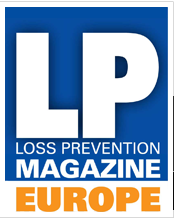There are few areas within the retail sector that have not been impacted both positively and negatively by the pandemic or undergone fundamental change as they emerge into the Brave New World. Change is a constant and surviving businesses – there were more than 17,000 retail failures during 2021 according to PwC’s latest business survey – have learned to adapt to a new normal.
However, the one constant throughout the last two years – and one that has become increasingly important in an omni-channel world – is the forensic need for stock file accuracy and the associated on-shelf availability. This, however, has been a near impossible task considering the various lockdowns.
The inevitable accelerated shift to online transactions may have presented as a more dynamic model of a fluid ‘can do’ customer experience, but in real terms translated into an image of crisis management and out of control perpetual inventory – including the mushrooming amount of resulting returns – were not where they should be in the supply chain. This, coupled with the closure of all but essential retail stores, meant that external stock takers could not come in and carry out the all-important counts to deliver the accurate and independent audits which, apart from being a legal requirement, provide the essential collateral on which retail businesses leverage future funding.
Orridge, one of Europe’s longest established stock taking companies, has been at the vanguard of working with retail customers throughout the pandemic as part of a programme of normalising the counting process at a time when business was far from normal.
Director, Peter Davies, said: “There has been a huge change in perception about the importance of stock file accuracy during this time. We have been fortunate to have been able to work with the businesses throughout.
“Obviously, we had an initial focus on essential retailers, including grocers and healthcare, but even for the non-essential customers when we were allowed in, there were unexpected ways in which we were able to provide support, sometimes unconventionally and often through adaptation and great customer collaboration.”
COVID-safe working practices and restricting the number of stock takers in-store have been some of the new practices that Orridge introduced right at the beginning of the pandemic to keep operations running accurately and safely at DCs and essential stores.
“During this time, there has been a general realisation of the importance of stock file accuracy in light of the fundamentally different way that people are shopping today. This has meant that we have picked up more business with distribution centres which have been fulfilling the online market and have been operating throughout.
“The enquiries here have dramatically increased as a result – not just in the UK but across Europe where we have secured more new business.
“During the lockdowns, which meant the closure of borders, our existing European footprint has allowed us to service struggling retailers throughout mainland Europe. Being responsive and flexible has resulted in us securing the UK business of some of these brands, which we never had previously,” he added.
Working on the principles of ‘if you can’t measure it, you can’t manage it’ Orridge’s independent helicopter view has created new levels of transparency not just as businesses battled the ravages of COVID-19, but also the challenges of Brexit and catastrophic supply chain incidents such as the Evergreen container vessel that blocked the Suez Canal.
It’s not just one thing that retailers have to think about, but a whole raft of supply chain challenges. For example, the cost of shipping containers has sky-rocketed because of international shortages, all of which have an impact on stock file accuracy and on-shelf availability.
Founded in 1846, Orridge adapts its approach to the dominant model of the day. The increasing use of DCs as fulfilment centres as well as ‘dark store’ models has allowed Orridge to not only carry out regular counts but add value by carrying out trials of accounting for and managing returns.
“This is easy for us as we are set up – we remove it from the stock count and put it back into the returns,” said Peter.
During the pandemic more store staff were counting their own stock, but the legal requirements of auditor accuracy has become a major focus, especially in light of the demands of the new omni-channel expectations.
“Commonly, retail self-counting was producing around 90 per accuracy, but when the industry hygiene expectation is 99+ per cent – levels we deliver on – you can see a huge disparity which will ultimately lead to reputational issues if not remedied. Stock file accuracy is a fundamental starting point that enables a business to plan and make the right decisions.
“It requires people who understand the supply chain and all its touch points and retailers realise they have to work with experienced practitioners who are flexible and work around them, weekends, for example, to deliver on good management processes and procedures that reflect the new way of working post-pandemic where the changes experienced have been immense,” he concluded.
